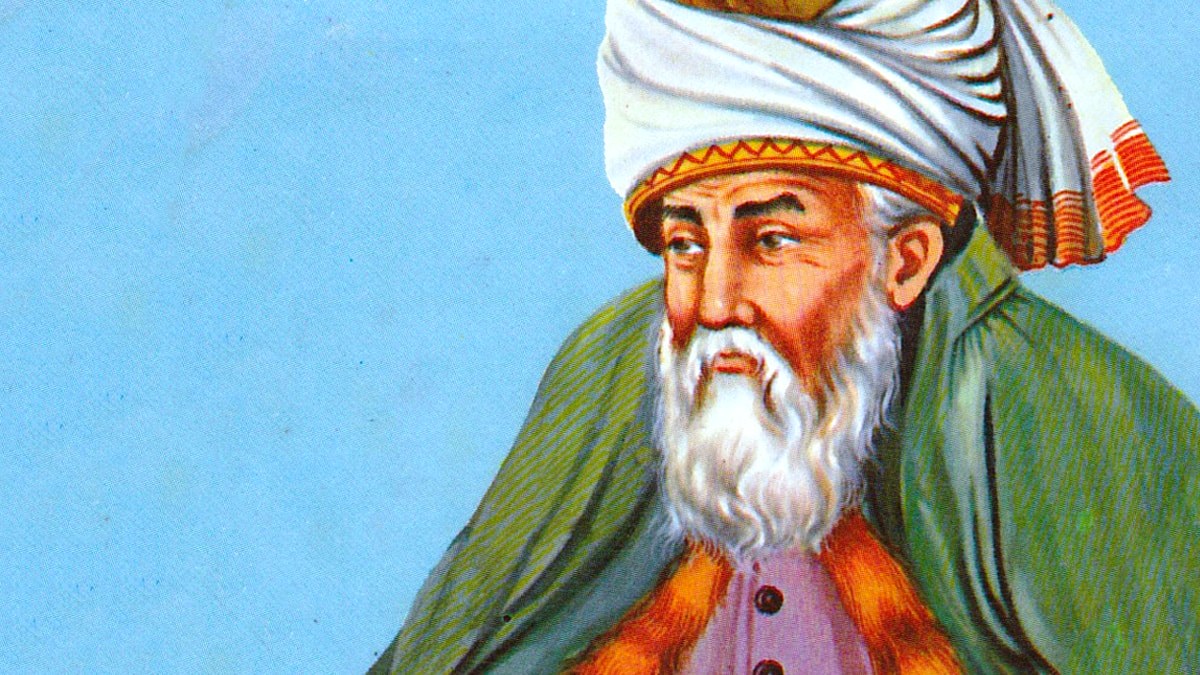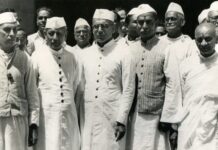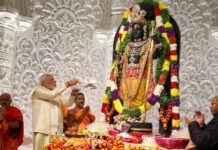Edwina-Nehru relationship and its impact on J&K’s fate is a favourite debate for historians, but India does not seem ready to watch what it has been gossiping for decades, reports R S Gull

The I&B Ministry officials in Delhi have already concluded the “first cut” to a Hollywood script to ensure Pandit Nehru, the father of modern India is not shown in “poor light”. Based on Alex von Tunzelmann’s Indian Summer: The Secret History of the End of an Empire, the film is a period drama charting the romance between Nehru and Edwina Mountbatten, wife of the last British viceroy Lord Louis Mountbatten who oversaw the British withdrawal from India and a simultaneous partition in 1947.
In categorical terms, the officials have told director Joe Wright that the film – slated to be ready by 2011, should be termed a “work of fiction”. The producers will have to omit the word ‘love’ all six times that appear in the script. They can not portray the cast – Cate Blanchett (Edwina) and Irfan Khan (Nehru) to hold each other’s hands or going to bed together, no kissing and no gestures of love and affection, a report from Delhi suggested. In British media, this has triggered the impression that the film may never be shot.
Acceptance of the preconditions would mean New Delhi permitting the producers to shoot the film at various locations in India including Delhi, Punjab and J&K.

Handling of the project, with or without New Delhi’s scrutiny, by Hollywood will be curiously seen in Srinagar because the romance has had an impact on handling Kashmir in 1947. And this fact has been accepted by almost every reputed historian and those who witnessed the partition of the subcontinent.
Pamela Mountbatten, the daughter of Lord Mountbatten and Countess Edwina, wrote a book India Remembered: A Personal Account of the Mountbatten’s During the Transfer of Power in which she has made it amply clear that her mother and Panditji shared a “deep emotional love”. It was this affair that Lord Mountbatten “used” to make Nehru take Kashmir to the United Nations, a watershed event that like a fish-bone New Delhi is unable to vomit or swallow.
The book is a detailed account of how the Mountbattens saw the happenings in British India’s last days. They had come in March 1947 with a clear mandate and left in June 1948. Back home he served at many positions and became the governor of the Isle of Wight in 1974. In August 1979, Irish militants blew up his boat off the coast of County Sligo in Ireland not far away from his holiday home at Classiebawn Castle and killed him along with his two relatives and a local boy. Edwina, however, died in her sleep on February 21, 1960, leaving a suitcase full of Nehru’s “love” letters on her bedside.
Instead of a celluloid trio, Lady Pamela Hicks wrote they were a “happy threesome”. Her parents, she wrote worked well as a team. “And of course, her (Edwina) special relationship with Pandit Nehru was very useful for him (Mountbatten), ever the pragmatist — because there were moments towards the end of our time in India when the Kashmir problem was extremely difficult,” she wrote.

“Pandit Nehru was a Kashmiri himself, so he was emotional about the problem. If things were particularly tricky my father would say to my mother, ‘Do try to get Jawaharlal to see that this is terribly important’.” Her father, she quotes, wrote a letter to her sister in June 1948: “She (Edwina) and Jawaharlal are so sweet together, they really dote on each other in the nicest way and Pammy and I are doing everything we can to be tactful and help.”
“That is true and he did use her like that. But he certainly wasn’t going to throw her, he didn’t say to her go become the Prime Minister’s lover because I need you to intercede. It was a by-product of this deep affection,” Lady Pamela Hicks said in an interview to Karan Thapar after the books ruffled many feathers both in UK and Delhi.
Asked (by Thapar), if there could be an area where her mother’s influence would have been particularly useful, Lady Pamela said: “I think it could have been well. Because Panditji being a Kashmiri, of course, inevitably the emotional side comes in from one’s own country, doesn’t it? And my father, just in dry conversation, mightn’t have been able to get his viewpoint over. But with my mother translating it for Panditji and appealing to his heart more than his mind … that he should really behave like this. I think probably that did happen.”
She admitted that her father had a bit of influence through her mother on Nehru. “Yes, I think so. But the important outcome of it all was really for the good of India … Panditji was a real statesman, it never occurred to him to make anything out of his position. He never made money out of it. He was the real idealist, for the good of India, always.”
But historians outside India are not ready to accept that “encouraging” Nehru to take Kashmir to UN was not the only “by-product” of the “platonic relationship”. The Radcliffe award, which gave Gurdaspur to India and eventually a dirt-track leading to Kashmir via Jammu, is a major charge against Mountbatten. The course of history would have been totally different had the Boundary Commission approached the belt on basis of demography rather than politics, most independent historians believe.

Von Tunzelmann, on whose impressive debut book the film is based, gives a detailed account of the highly depressed Radcliffe. A London barrister Sir Cyril Radcliffe, according to the book was under pressure from Mountbatten to change the Punjab border in India’s favour. Nehru was the man from whom the pressure originated.
Throughout the rest of his life, says author Von Tunzelmann – a historian who has been writing a column in the Telegraph London, Mountbatten kept up the position that he had never interfered with Radcliffe. “This was a lie, as he allows in at least one private letter,” she says. The author says, Radcliffe, on whose insistence his papers on partition were burnt, left India highly depressed almost at the same time when India started celebrating its freedom. The book has recorded his parting words: “Nobody in India will love me for my award about the Punjab and Bengal and there will be roughly 80 million people with a grievance who will come looking for me. I don’t want them to find me!”
Nehru has had talked about Kashmir many times before the partition with Edwina. He had famously confided in her once: “Kashmir affects me in a peculiar way; it is a kind of mild intoxication – like music sometimes or the company of a beloved person.” Post-partition, Nehru in a rare photograph is seen explaining to her the beauty of the Dal lake from Cheshma Shahi guest house in Srinagar.
Lord Mountbatten visited Kashmir in June 1947, apparently to do Nehru’s bidding in Srinagar with Maharaja, a mission that miserably failed. He had a brief meeting with Hari Singh in the back of his car advising him to forget any thought of being independent.
If the film’s soul rests in Von Tunzelmann’s book, then the film will have to make serious efforts to portray the period in which the romantic story is set. She says in an interview: “The chapter that caused me the most headaches was undoubtedly Kashmir. Researching Kashmir is like stepping into an MC Escher painting. Every time you think you’ve found a foothold, it begins to twist round to become a bit of ceiling and you’re left tumbling through thin air again. The most basic facts are completely impossible to establish. For instance, no one can determine even a ballpark figure for how many people were exterminated by the Maharaja of Kashmir’s troops during 1947. I’ve seen estimates ranging between 200 people and 200,000 people. There’s virtually no independent verification of anything, and it’s all incredibly politically sensitive within India as well as across the entirety of the Islamic world. Faced with this sort of thing as a historian you just do your best, but of course, it helps if you don’t have existing bias towards one side or another.”

The subject has been tackled by many films. In 1998, Akber S Ahmad’s film Jinnah that won many accolades in the Western world has amply shown the role that Lord Mountbatten played as Qaid-e-Azam’s nemesis. It has clearly captured the link between the relationship of Nehru with the last Viceroy’s wife and its implications in the decision making during the subcontinent’s most crucial phase. But the film was done and directed by the people who still would like to stick to the “rival versions” of the history. This is for the first time that the issue is being tackled by a “third party”.
At the end of the day, it is the issue of credibility involved from both sides. Will Hollywood compromise on the storyline simply because India offers a huge market? And why is not India ready to watch what it has been gossiping about for decades – Jinnah went to war and lost Kashmir, Nehru went to bed and got it!















